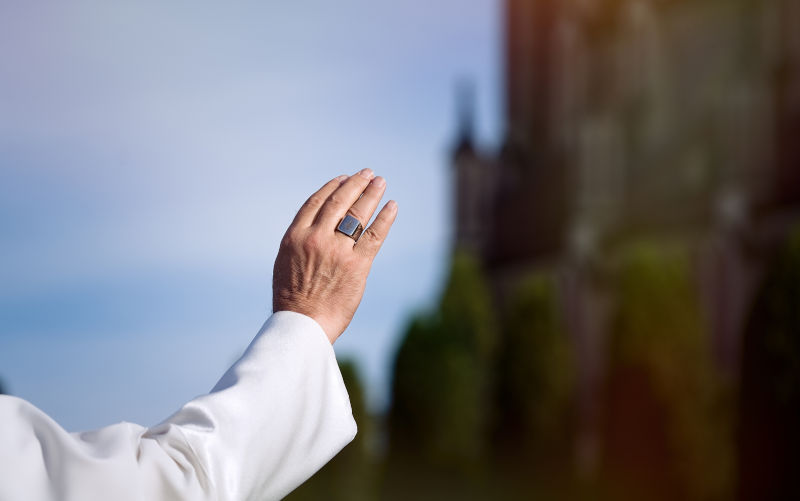Two meetings: Frascati and the Vatican
November 26, 2022
Catholics who are hoping for a more inclusive, less dogmatic and open Church will have been heartened by reports of two recent meetings.
The first of these meetings took place in Frascati in Italy in early October. A small group of bishops, priests, religious and lay men and women were commissioned by the General Secretariat of the Synod to review the submissions from 112 episcopal conferences and 15 Oriental Catholic Churches. There were reflections, too, from 17 of the 23 dicasteries of the Roman Curia and from various other religious and lay institutes. Each of these reported on the reactions of their respective institutions to the prospect of the upcoming Synod on Synodality, which is to be convened in two sessions in Rome in October 2023 and October 2024.
After two weeks of meetings, the small group, drawn from all continents and with a very diverse disciplinary expertise, produced the Working Document which is to serve as a basis for the meetings of bishops grouped together, continent by continent, in March 2023 in preparation for the drafting of the agenda for the October 2023 Synod.
The Working Document is refreshing. Its icon is the tent proclaimed by the prophet Isaiah: Enlarge the space of your tent. Its theme is inclusiveness. Its agenda does not shirk from addressing the hot button issues that confront the contemporary Church: clerical sexual abuse, clericalism and autocratic hierarchical structures and practice, the absence of young people in the Church, clerical celibacy and the shortage of vocations to the priesthood and religious life, and the culture of exclusion that disenfranchises so many groups: the poor, the disabled, the indigenous, the lonely elderly, migrants, prisoners, the LGBTIQA+ and, of course, women.
Against this culture of power, exclusion, secrecy and sexism the Working Document proposes an open tent of communion, participation, co-responsibility and transparency. It will be interesting to see how the representatives of the episcopal conferences, continent by continent, will respond to these challenges in March 2023.
The second meeting that may also give encouragement to those seeking a more open inclusive Church was the five-yearly ad limina meeting of 63 German bishops with the Pope and the Vatican Curia in mid-November. It was not that the Vatican endorsed or withdrew its reservations concerning the German Synodal Way. On the contrary, heavy Curial artillery was directed at the German episcopate and the DBK central committee of lay Catholics. Cardinal Pietro Parolin, the Vatican Secretary of State, raised concerns that the Synodal Way was aimed at reform of the Church rather than reform within the Church. Cardinal Luis Ladaria, Prefect of the Dicastery for the Doctrine of the Faith, expressed reservations about the methodology, content and proposals of the German process. And finally, Cardinal Marc Ouellet, Prefect of the Dicastery of Bishops, even proposed a moratorium on any further meetings of the German Synodal Way.
The Cardinals major concerns centred around the Synodal Ways approval of a permanent synodal council that included not only bishops but also equal numbers of laity to advise on major developments in church and society. There were concerns, too, around its call for women to be admitted to the diaconate and for a consideration of allowing women priests. And there were strong reservations concerning its further call for a revision of the Church teaching on homosexuality and its approval of blessings for persons in committed same-sex relationships.
Despite these reservations and their advocacy by the three influential Curial Cardinals, the suggestion that a moratorium be imposed on any further meetings of the Synodal Way was rejected. The fifth meeting will go ahead in March. Nor did the President of the German Bishops conference, Bishop George Batzing, resile from the necessity of addressing these and other neuralgic issues in Church life and governance. He also noted that many of the issues that the German Church was addressing had also been reported in the submissions of the 112 episcopal conferences from which was drafted the substance of the Working Document for the continental meetings of bishops.
The Synodal Way did not emerge unscathed from the Vatican scrutiny, but at least it did emerge to fight another day, and the contentious issues it has had the courage/temerity to address remain on the table, hopefully for consideration at the October Synod. If this is not exactly as heartening as the Working Document, at least it should evoke a sigh of relief that the Vatican was unsuccessful in its attempt to close down the Synodal Way. It will be interesting to see how the Vatican will react after the March meeting of the German synod. But Bishop Batzing has to some degree pre-empted a negative judgement by invoking the synergy in agenda between that of the Synodal Way and that of the Working Document of the Secretariat of the Synod.
Clericalism, hierarchicalism, secrecy in decision-making, exclusion and disenfranchisement, women, young people, sexuality these are issues common to both agendas. While the Pope has said that the Synod on Synodality will be primarily about process, it is to be hoped that at least by October 2024 these issues, too, will be addressed. While process and practice are in principle distinct, often the way we process is an indication of the way we practise in life. So, reforming the process to embrace synodality arguably may lead also to a more open and inclusive Church.
